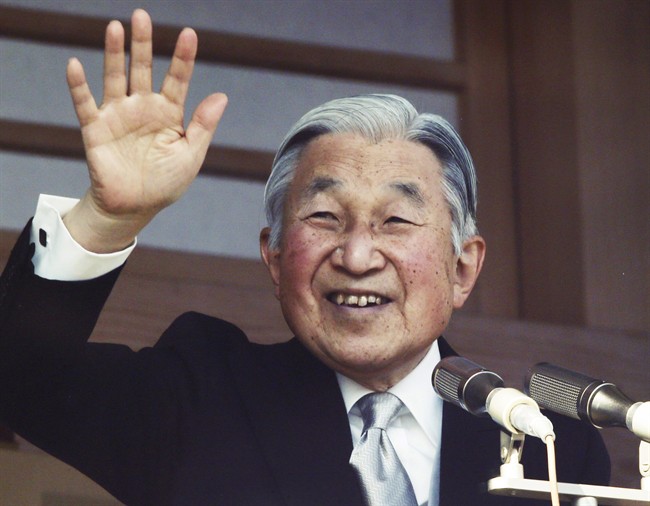A special panel chaired by Prime Minister Shinzo Abe has agreed that the date of Emperor Akihito’s planned abdication – the first by a Japanese monarch in about two centuries – should be on April 30, 2019, national broadcaster NHK reported.

WATCH: Prince William greeted by Japanese Emperor Akihito outside Imperial Palace
Akihito, who has had heart surgery and treatment for prostate cancer, said in rare remarks last year that he feared age might make it hard to fulfill his duties.
A law adopted in June allows Akihito to step down, but left details such as timing to be worked out later. Akihito will be succeeded by his heir, 57-year-old Crown Prince Naruhito.

Get daily National news
“This is the first abdication by an emperor in 200 years and the first under the (post-war) constitution,” Abe told reporters after announcing the results of the panel’s discussion.
“I feel deep emotion that today, the opinion of the Imperial Household Council was smoothly decided and a big step was taken toward the imperial succession.”
The cabinet will likely formally decide the date next Friday, media reported.
Once considered divine, Japan’s emperor is defined in the post-war constitution as a “symbol of the state and of the unity of the people”, but has no political power.
Akihito, along with Empress Michiko, has spent much of his time on the throne seeking to soothe the wounds of a World War Two, which was fought in his father Hirohito’s name, and consoling victims of disasters or other woes. He is widely respected by many Japanese people.
- Epstein files fallout: People who’ve resigned or been fired after DOJ release
- Inuit look to Greenland’s social model as Canada pursues military buildup in Arctic
- White House says tariff rollback reports ‘speculation’ unless announced
- 2 ICE officers face probe into whether they lied about Minneapolis shooting







Comments
Want to discuss? Please read our Commenting Policy first.